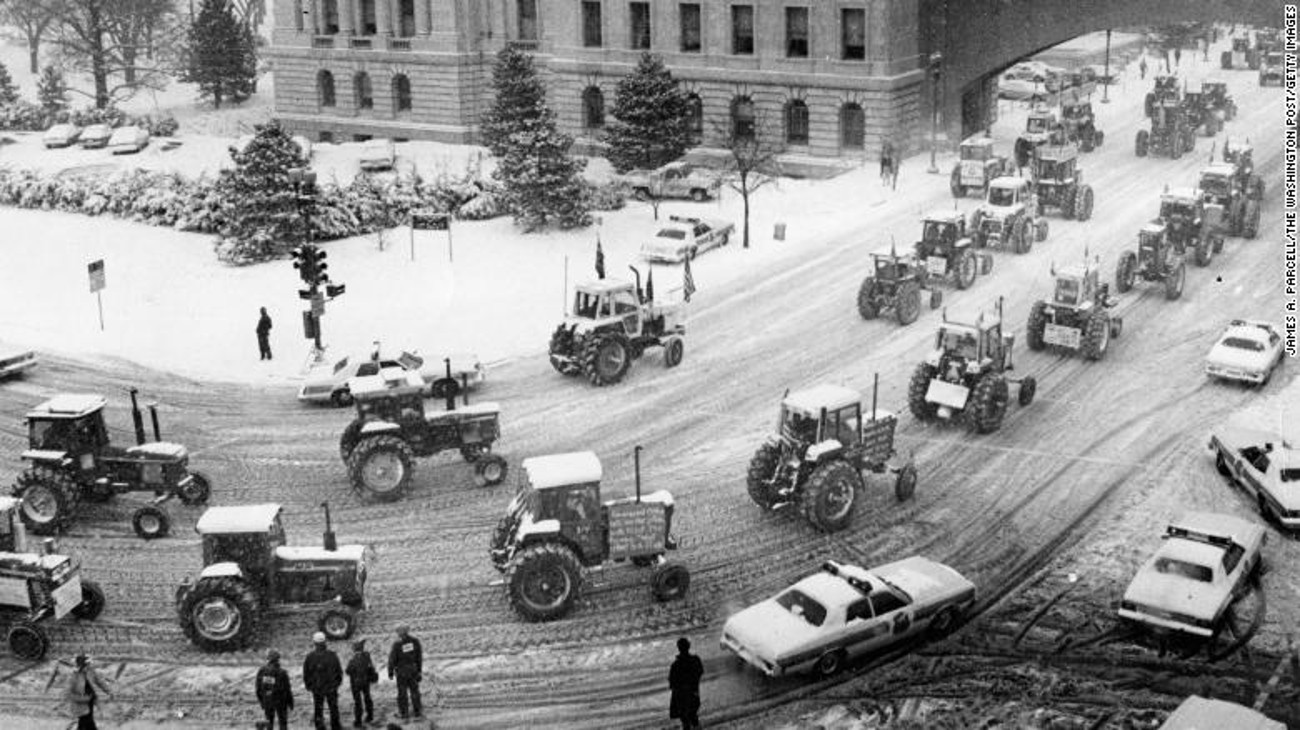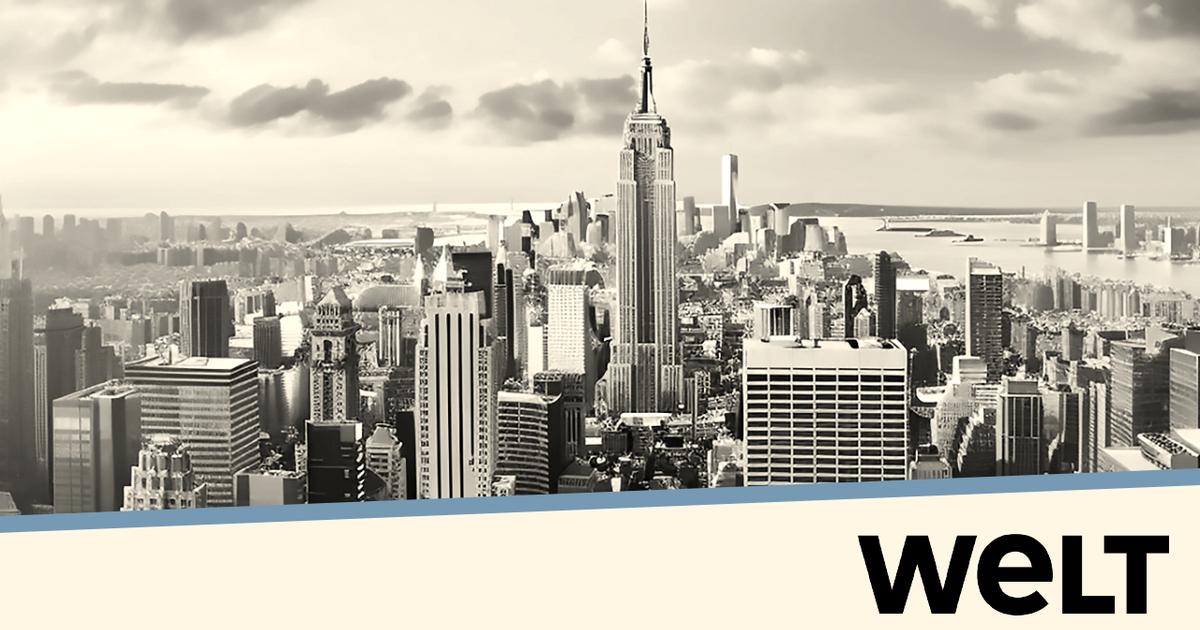The Fed raises interest rates again by 0.75% 0:59
(CNN) --
Americans need to realize that efforts to rein in runaway inflation, while arguably necessary, have real consequences on the economy that can hurt.
Much.
There was a time not too long ago when:
A small army of farmers, protesting foreclosures due to high interest rates, headed to Washington on tractors to protest the Federal Reserve.
Car dealers sent caskets full of unsold car keys to the Federal Reserve to represent the death of sales, because people could no longer afford to take out loans to buy cars.
Builders sent 2x4s to the chairman of the Federal Reserve to remind him that his effort to curb inflation was suffocating the construction industry.
The rich but largely forgotten story of people protesting high interest rates at the Federal Reserve sounds crazy today, when Americans are so used to such easy access to borrowed money.
We're talking about the late 1970s and early 1980s, when high inflation was so ingrained in the American psyche that ending it was a shock to the system, leading to everyday interest rates being the height of those who charge credit cards today.
The Fed raises interest rates again by 0.75%, in a historic measure to curb inflation
The medicine to cure inflation triggered a double dip—in which a recession was followed by a brief recovery and then another recession—and put millions of Americans out of work.
The architect of that clash, former Federal Reserve Chairman Paul Volcker, is today hailed for doing the politically difficult thing and setting the stage for decades of economic growth to follow.
advertising
But he faced criticism when inflation slowed.
The chairman who put Volcker at the helm of the Fed, Jimmy Carter, lost his job amid a crisis of confidence and voter unrest.
Ronald Reagan would reappoint Volcker for a second four-year term before the two fell out.
The "Volcker shock"
.
People are reminded this week of the "Volcker shock", which altered the course of the US economy back then, as the Federal Reserve today imposes its second consecutive massive rate hike.
What is the impact of rising interest rates?
1:51
What kind of interest rates were being considered when Volcker faced inflation?
Mortgage rates skyrocketed
.
Let's look at 30-year fixed mortgage rates, which remain close to the rates the Fed controls.
The 30-year average fixed rate was already excessive, approaching 12% in October 1979, even before Volcker's dramatic announcement to clamp down on inflation.
In a few months, the average rate had shot up to more than 16%.
The average rate on 30-year fixed mortgages was over 18%, its meteoric high, in October 1981.
Today we are still a long way from those 1980s highs;
30-year fixed rates have almost doubled in a year, to almost 6%.
Volcker's legacy is imposing.
In all the stories you read about Volcker it is mentioned that he was tall, 1.90 meters.
But his legacy is as great as he is.
In addition to administering the harsh medicine that put an end to runaway inflation in the 1970s, he is credited with the "Volcker rule," which for a time prevented banks from trading their own assets.
Chris Isidore wrote CNN's obituary for Volcker in 2019. I asked how Volcker might view the current fight against inflation.
He made these important points:
Volcker was willing to make tough decisions.
Volcker believed that the Fed had to do whatever it took to get prices back in line.
Under his guidance, the central bank raised its benchmark interest rate to 19% in January 1981.
There were consequences.
His policy of high interest rates caused not one, but two recessions in a short time: one from January 1980 that lasted until July 1980, which was shortly followed by the recession that began in July 1981 and lasted until November 1982.
In November 1982, the unemployment rate reached 10.8%, that is, almost a percentage point higher than it reached after the Great Recession of 12 years ago.
It was much worse inflation than what we have today.
Volcker had to fight much more serious inflationary pressures, as the rate of increase in the Consumer Price Index peaked at 14.8% in March 1980, well above the current rate of 8.3%.
US economy shrinks again and recession fears rise
Volcker faced a wage-price spiral
.
There were far more workers on union contracts than today, and many of those contracts had cost-of-living adjustment, or COLA, clauses that automatically increased wages when prices rose.
Today it is not like that.
Today the Federal Reserve has less control.
Many of the factors behind the current high inflation are beyond the control of the Federal Reserve, including spikes in oil and food prices caused by the war in Ukraine, and supply chain problems caused by the coronavirus pandemic. covid-19 virus, which continue to increase the cost of production of many products and cause shortages in the face of strong demand.
Inflation can become a self-fulfilling prophecy
Much of the Fed's job in taming inflation is convincing people that inflation has been tamed, according to former Fed official David Wilcox, who is now a senior fellow at the Peterson Institute for International Economics.
Just before this latest rate hike, he wrote an op-ed for CNN Business, offering two paths for America:
The optimistic view is that people believe that inflation is under control
.
"If households and businesses hold the view that inflation will return to 2% in the not-too-distant future, the Fed's task in achieving that outcome will be much easier," Wilcox wrote.
The pessimistic opinion is that people believe that it is here to stay.
"The experience of price escalation at the gas pump and grocery store over the past year may have conditioned households and businesses to expect more of the same," Wilcox wrote.
"In that case, the Federal Reserve will have to raise its policy rate much more, and the coming economic downturn will be much deeper."
Wilcox argued that Volcker was trying to shake Americans out of a general acceptance of too high inflation.
Today, Wilcox seems optimistic, predicting inflation to be lower a year from now and in the 2% target environment two to three years from now, though who knows what will happen with the pandemic and the war in Ukraine.
Wilcox refers to Volcker as "the patron saint of inflation control" and notes that current Fed Chairman Jerome Powell invokes Volcker's name frequently.
It is usually in glowing terms.
This spring, Powell praised Volcker for fighting on two fronts, "slaying, as he called it, the 'inflationary dragon' and dismantling the public belief that high inflation was an unfortunate but immutable fact of life."
Let's hope it isn't and that these interest rate hikes don't have the same unintended consequences as Volcker's more than 40 years ago.
FedInflation


/cloudfront-eu-central-1.images.arcpublishing.com/prisa/X33WQ3GSYFF3DBKJDAVIGHN3DA.jpg)









